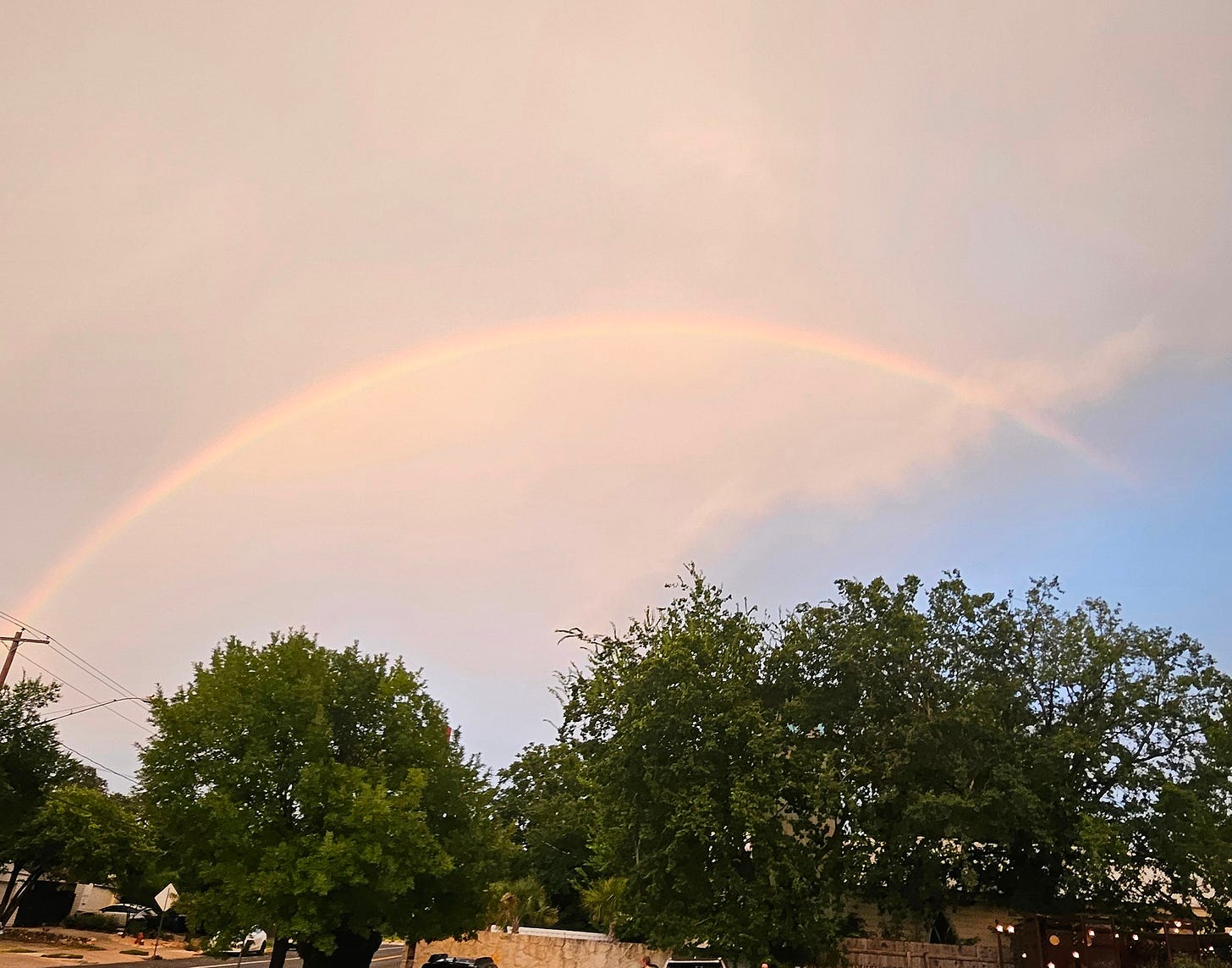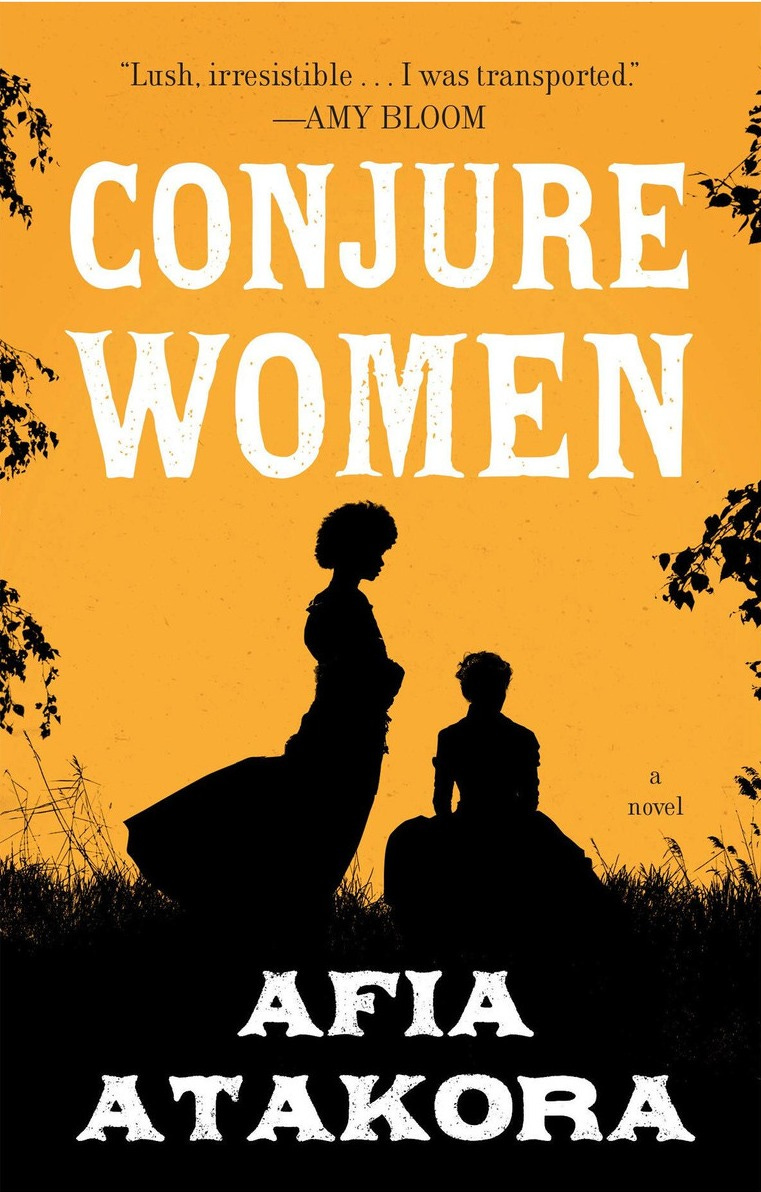“Some knowledge is better kept hid.”
secrets & Afia Atakora’s Conjure Women
I recently finished Afia Atakora’s novel Conjure Women and it has me thinking about the nature of secrets.
I don’t keep many secrets. But I am a relatively private person who divulges information at my discretion or when prompted, and I’ve always been this way. I feel tension with our current culture of oversharing, overpublicizing, and surveilling every moment for the sake of creating content, getting money, policing ourselves and others, or entertainment. Sometimes I see social media videos from creators spilling the most intimate details of their lives or exposing another person’s otherwise private moment and I find myself thinking, “why did you permanently tell the world that? Was it worth it?”
Conjure Women is the story of mother and daughter healers during and just after slavery in the US. Both women keep many secrets, not only for the security and effectiveness of their conjure practice, but as part of larger efforts to survive plantation living. The ability to keep a secret is life and death. It is simultaneously danger and protection. The title quote comes from a character named Bruh Abel after he reveals he knows how to read, which is a surprise to the main character, Rue. Some knowledge is better kept hid, he says.
It is, isn’t it?
There are many types of secrets, I know. Some things need to be shared, exposed. Some secrets create unhealthy facades that should be shattered so we can address reality. But some secrets protect us. Some information can be dangerous in the wrong hands or simply doesn’t belong to everyone. I’m thinking here of the underground railroad, of magicks. Even of trade secrets. Secret recipes.
I would call these positive community secrets. Ones integral to the inner workings, survival, or relationships of a group of people. I am intentionally setting them apart from negative community secrets (ones that harm a keeper/victim or perpetuate abuse) and personal secrets (ones an individual keeps about themselves for any reason). And there is an art to keeping positive community secrets within your select group. People who practice community care hold their people’s information, stories, and practices closely and carefully. If they share to an outgroup for any reason, that sharing is selective and considerate. Otherwise, it’s exploitative or traitorous.
In a hyper-surveilled society, how do we keep positive secrets?
lie sometimes?
Rue, a conjurer, learns to lie early and continues to lie for her entire life. Some of her lies are selfish, some backfire and have negative consequences. Yet some lies save herself or other people from harm—e.g., telling her white masters what they want to hear, telling a birthing mother that everything’s okay just so the mother won’t give up.
Lying is a tool, and it’s sometimes necessary to keep a positive secret or gatekeep a cultural tradition. If you’re chronically online like me, then you might remember the fierce protection of oxtail (example) a few years ago after it rose in price and demand due to white/rich people colonizing it. Online, it was somewhat a joke, but the emotion behind it is serious. Theft is a frequent consequence of a marginalized group secret becoming public. It’s harmful, it’s exhausting. Let’s lie more!
As Solange put it, some shit is for us/ some shit they can’t touch.
What are we willing to do to keep what's for us?
silence, selectivity
Some knowledge is better kept hid. Everyone doesn’t have to know everything we know. Everything we’re doing. Everything we like.
Bruh Abel didn’t lie to keep his secret, he simply didn’t mention it. There is power in being quiet, in keeping some things close to the chest, not correcting other people’s wrong assumptions. Real Gs move in what? Silence.
And if we must share, there has to be a vetting process for sensitive information. I’m thinking now of organizing and the success of groups who vet their members and keep the details of their actions private. That kind of privacy is crucial to effective strategizing and execution. Word of mouth, physical media. Keeping something secret means getting off Canva and into living rooms.
secret from who?
Psychology says that keeping a personal secret can be stressful and isolating. So true. But a secret between multiple people can be a point of bonding, an understanding, a building of trust. When it comes to a positive community secret, while there can be stressful elements involved for sure, I like to think there’s an aspect of empowerment. A little bit of this is ours & no one else’s.
I had no intention of writing this long musing when I started this. I actually set out to just share some thoughts related to the novel. But privacy has been on my mind. With increases in surveillance tech, data collection, tracking, and just overall ease of online content being shared outside of our control, it’s something we have to fight for now. Something we have to be intentional about.
So, what types of secrets do you keep?
Are you good at keeping them?
Pass the Write
Pass on good vibes to a writer this week! In the comments or on your own platform, take a moment to shout out a writer who makes you feel seen. Bonus points for tagging them.
Updates
I have a recent poem called “You Goes to the Gyno” published in Underblong!
A few weeks ago, my poetry slam pick up team placed 4th at the Bigfoot Regional Slam 🙂. Check out my group piece with Christopher Diaz :)
The Sudan Solidarity Collective supports emergency response in Sudan. Please use this link to donate or sign up for one of their artist workshops to support.
Things I read:
Slepian, M. L. (2022). A process model of having and keeping secrets. Psychological Review, 129(3), 542–563. https://doi.org/10.1037/rev0000282
Smart, C. (2011). Families, Secrets and Memories. Sociology, 45(4), 539–553. http://www.jstor.org/stable/42857553




Bigfoot was fantastic. I can't believe that Ouroborus poem was a sacrificial poem. You can't drop a poem like that as calibration--freaking messes up the judging!
Probably says something about how I feel here that my favorite event in Portland poetry is when there's more non-Portlanders involved. Whoops.
An author who makes me feel seen. I appreciate the idea of that. Becky Chambers might be a cheat answer, more of a making-room-for-everyone, and so by default there's room for me. The Long Way to a Small Angry Planet is such a refreshing read. It's SF that's delightful. There's a comfort with ...technically with "the alien" since it's SF, but as Le Guin has pointed out: SF is always about here & now; the future is a metaphor.
What's funny is that I've been playing with this idea in an Ars Poetica I've been tinkering with, about how artists change the world in smaller ways rather than big ones. (Haven't managed to tighten it to slam length ...maybe I never will.) It's Prince I call on as the exemplar, how one line in the song 7 made me feel instantly less alone.
Finally, hmm, I feel like answering "the kinds of secrets I keep..." very quickly slides into "my toxic trait is..." territory.
Emotional, observational, personal--but I don't *mean* to keep them as secrets. Like Bruh Abel you mention above, I'm not lying about anything. I'm not even sure how I got the habit, but I do keep them... in case I need them. You know, for the moment someone comes at you with too much heat, and you can stun them with the: "Oh right, this is what you do. It's a pattern." Not that I've actually done that much, or that I'd do it in a mean way. There's probably a healthier, more natural way to inform people about their bad patterns in lower stakes moments, or to share my more raw emotions about things. But I kinda don't share that stuff until I feel it's useful.
I love this